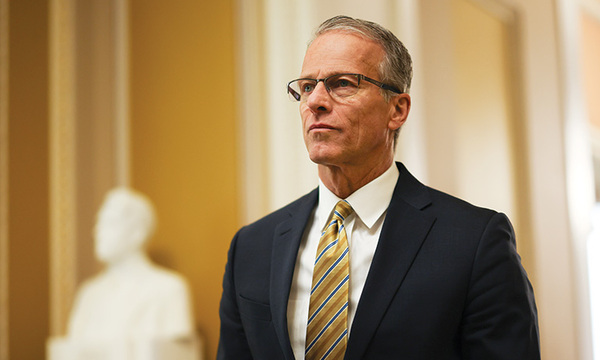
I am always surprised and amused to hear people talk about verses they think are in the Bible that are not. I led a small group of college guys and when they would stumble on these imaginary quotations, I would challenge them to tell me where it was written. My favorite was this: “God helps those who help themselves.”
The stuff that we think is in the Bible tells us more about ourselves than it does about God. What do you get in a society which thinks that God helps those who help themselves? Perhaps you get an industrious society. But you also get an overly busy society. You get a society that is stressed out, that is driven and exhausted. More than anything, you get a world that hates to wait.
But what I find in the Bible is that there are two paths that one can follow in life — the path of self-reliance or the path of faith. Isaiah 30 says, “Blessed are all those who wait for him.” In the 7th century B.C., Judah was at the crossroads of a power struggle between Assyria and Egypt. There was a faction that wanted to make an alliance with Egypt. Into this crisis, Isaiah gave sage advice: “‘In returning and rest you shall be saved; in quietness and confidence shall be your strength.’”
1. The path of waiting is the path of surrender. The word “returning” here really means to surrender. It means returning from the battlefield and laying down your arms. This is a picture of giving yourself over to someone. What happens when you surrender? You release control. You abandon yourself to the will of someone else. That is the essence of surrender. That can be a frightening proposition for us. But the bottom line is that you’re not abandoning yourself to the enemy; you’re abandoning yourself to God and his gracious plan.
We all have a picture in our heads of what our future should contain, and we are determined to secure that for ourselves. In 2013, I gathered a small core group of close friends and ministry partners to plant a church. They were a dynamic group; I remember thinking that it was going to explode with growth. However, the going was much tougher than we thought. We were devastated after three years when we had to pull the plug and close Resonate. It was gut-wrenching.
During one of our last services, my 8-year-old son turned to me during the worship time and said, “Daddy, I want to put the $100 bill that grandpa gave me into the offering box.” I asked why, and he said, “Because I don’t want our church to go away.” We fight to hold onto our vision of the future, but God says to us instead, “Surrender.”
Rest is the result of surrender. You may not know this, but there is a comfort in that place in the hollow of God’s hand. There is a quiet calmness and confidence in the midst of the storm. The result is not weakness, but inexplicable strength.
2. The purpose of waiting is to teach you what God is like. As it turns out, the Israelites didn’t listen to Isaiah, and so they paid a high price. But even having taken the wrong path, God didn’t abandon them. Here is what the prophet tells them on behalf of God: “Therefore the Lord waits to be gracious to you, and therefore he exalts himself to show mercy to you. For the Lord is a God of justice; blessed are all those who wait for him.”
We are given a divine perspective into who God is and how he works. In this passage, God postpones deliverance. He withholds rescue so that adversity can teach them and can bring them to dependence. Why would God allow that kind of suffering? He wants to reorient my hope. He wants to change the path that I’m on. If you have yet to come to the end of yourself, then rescue is simply interference in your plans. But God cares more about my growth than my personal comfort, and as much as I struggle with that truth, I have to admit that it reveals his grace. Waiting is the place where we discover God’s mercy and grace.
I don’t really know if God helps those who help themselves, but I do know that there are two paths before you in life: the path of self-reliance and the path of faith. Which one will you choose? Blessed is the one who waits for him.
Daniel Radmacher (’90, M.Div. ’04) is a pastor, author, church planter and an erstwhile musician. He lives in Pasadena, Calif., with his wife, Brenda, and his children, Drake and Ivy. You can follow him on Facebook or Twitter, or at his website, danradmacher.com.
 Biola University
Biola University


